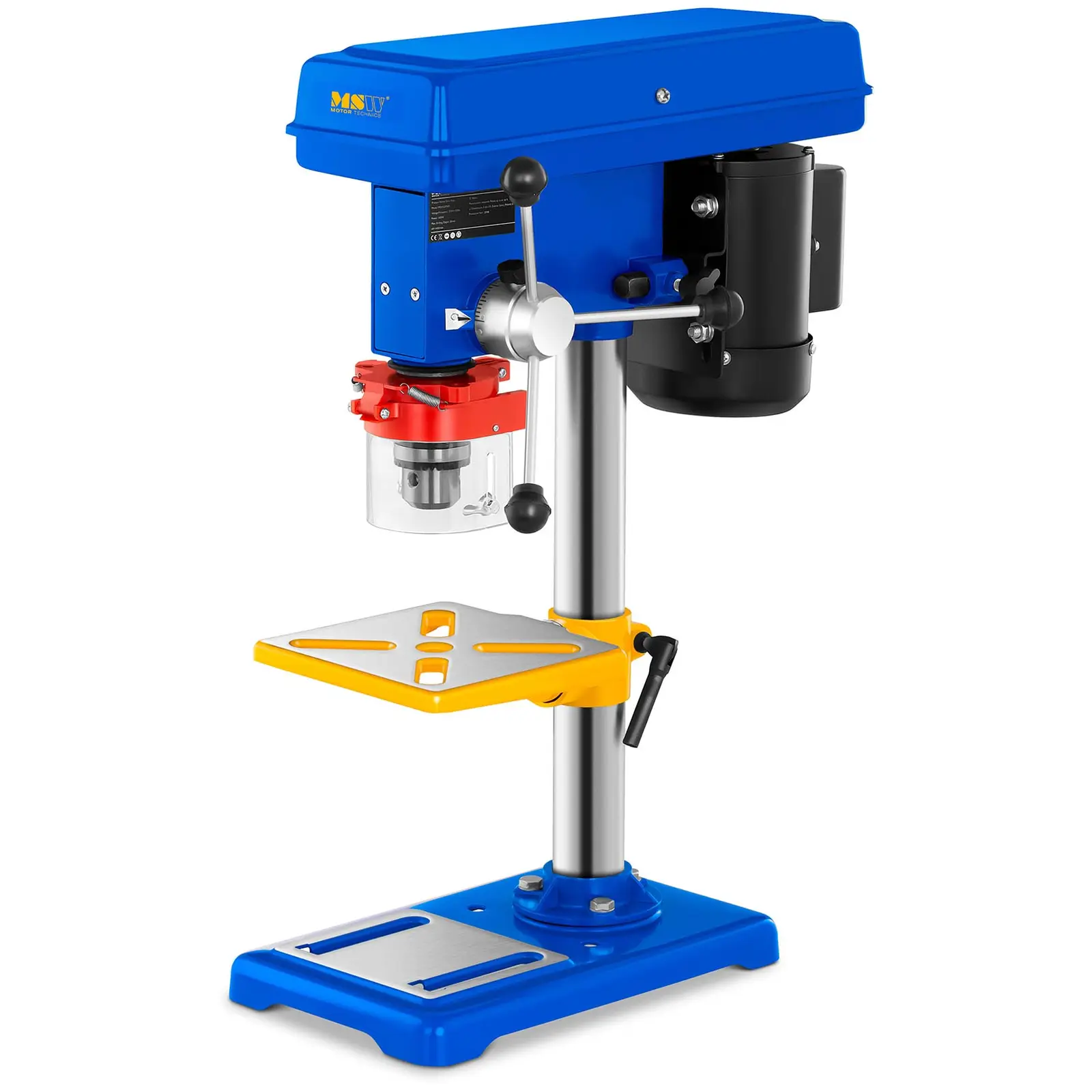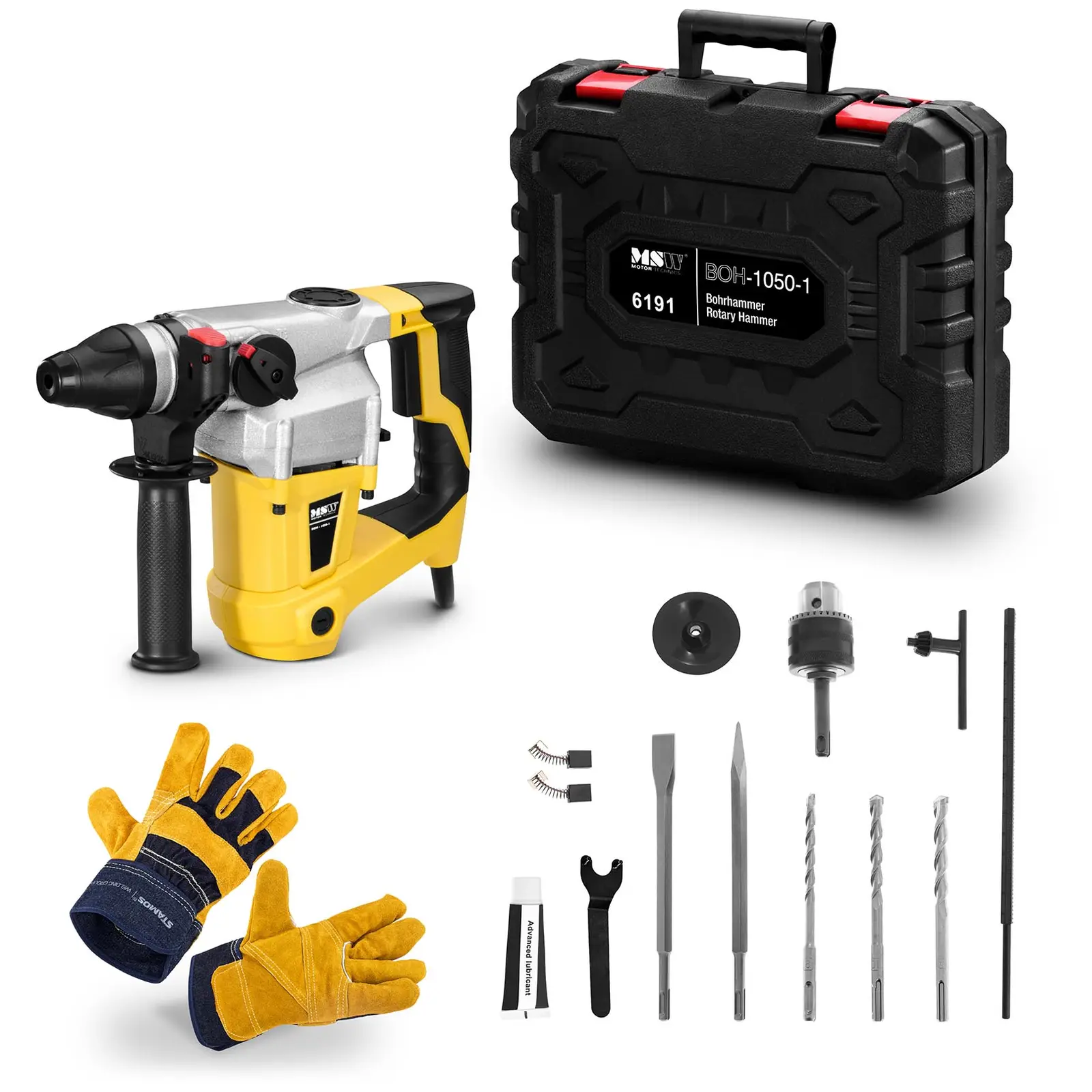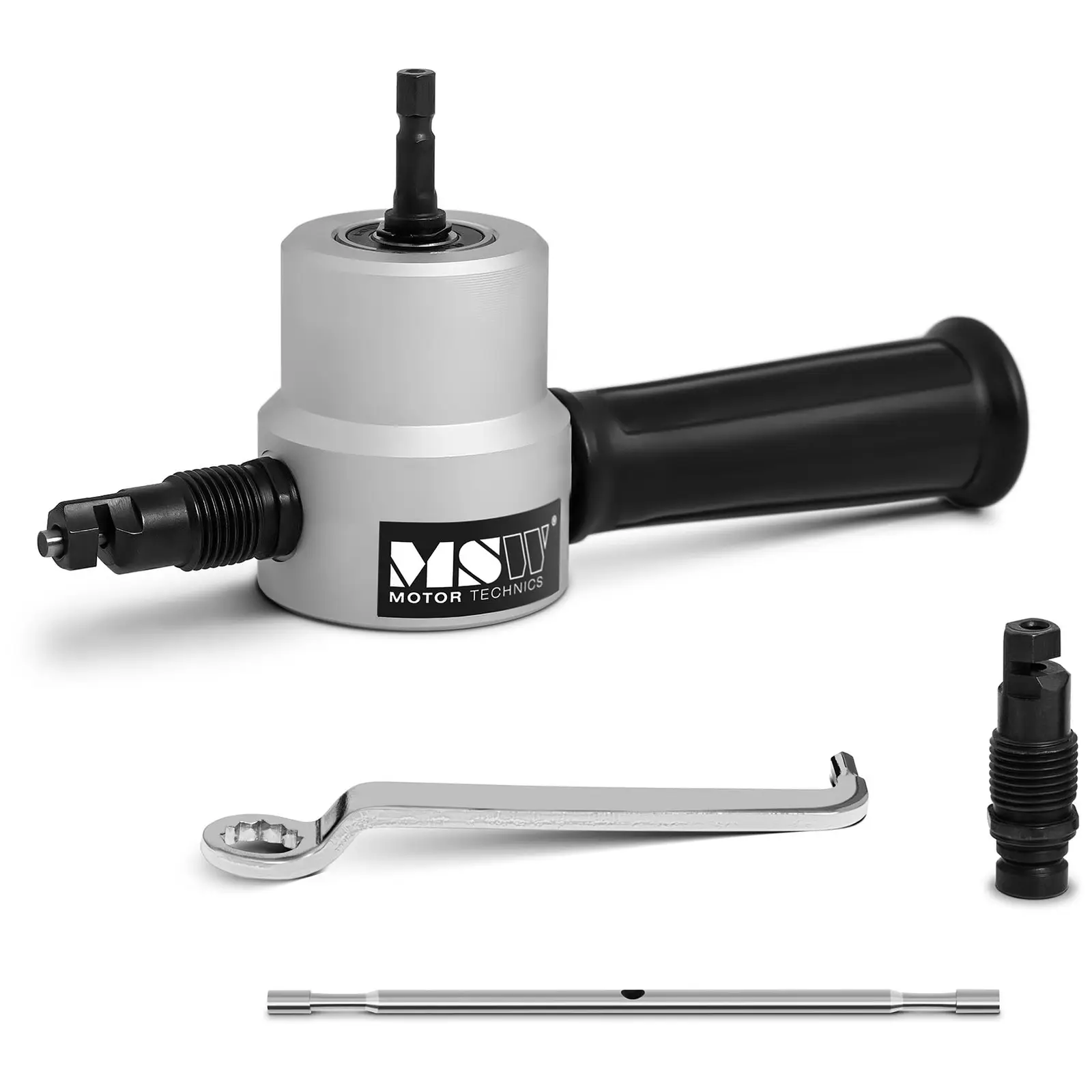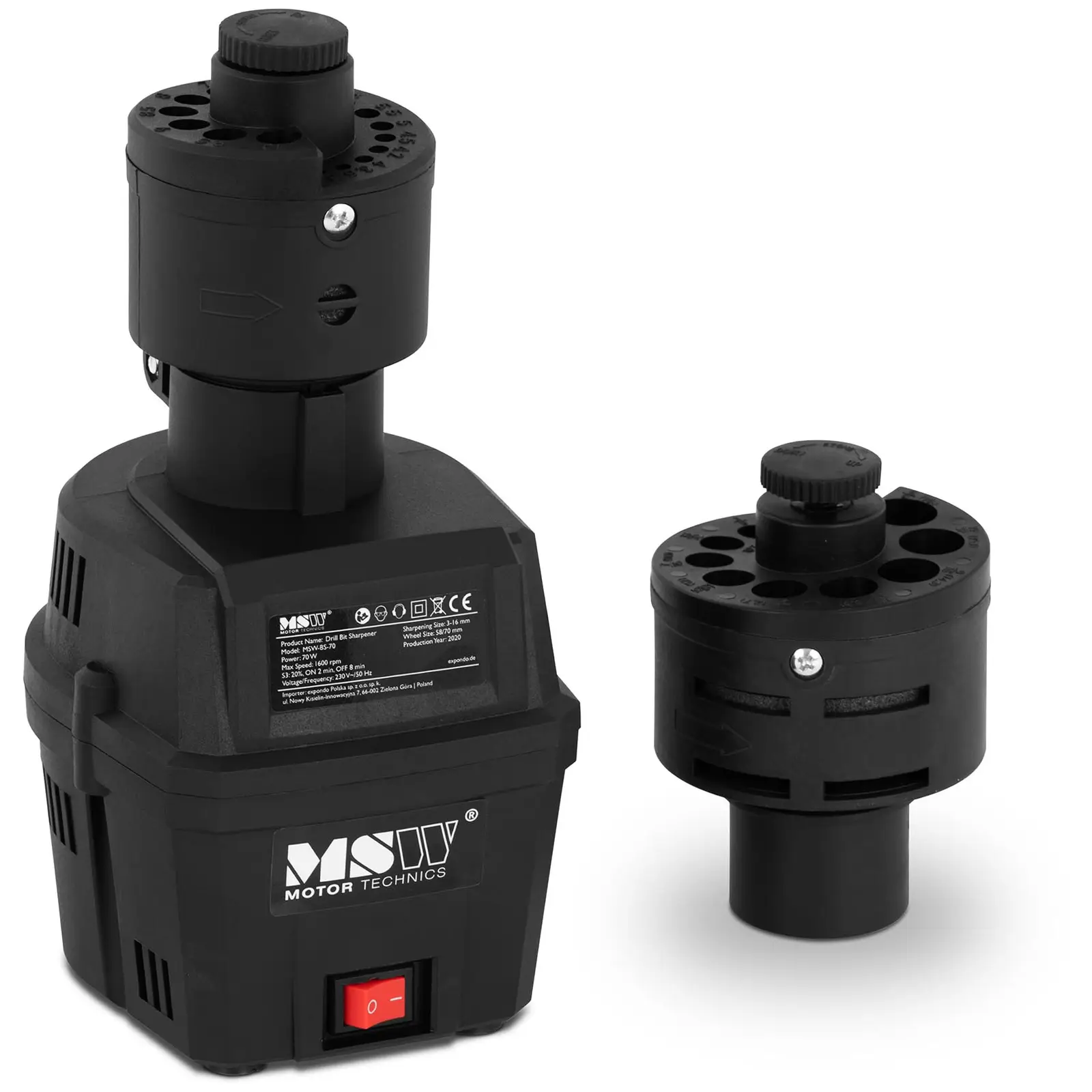In every workshop, both professional and at home, you need appropriate equipment for specific tasks. So let's have a look which bench drill press will be the best option for drilling a series of precise holes, as well as the basic parameters of such equipment.

In every workshop, both professional and at home, you need appropriate equipment for specific tasks. So let’s have a look which bench drill press will be the best option for drilling a series of precise holes, as well as the basic parameters of such equipment.
Specifications of a bench drill press
Bench drill presses stand out above all by the fact they are used vertically, mounted to a benchtop, so they differ in appearance from classic hand drills. Instead of the usual hand grip the main body is mounted to a metal column, making the whole structure very solid and stable.
The working head of the bench drill press comes with a mandrel with a holder for mounting drills. The mandrel can be pulled out and it lets you point the drill bit downwards at a perfect right angle. The machine runs on electricity and its engine is mounted on the side of the column opposite the working head, with a transmission belt in the main body transmitting the engine drive to the head.
There are two types of holder for mounting drills or accessories located in the head. The first one is the Morse taper, i.e. a tapered spindle to mount tooling. The second, much more modern type, is a self-locking chuck.
Bench drill presses are equipped with directional switches, as well as the possibility to set a constant drilling depth. While the meaning of the first function is self-explanatory, the latter requires a bit of explaining. It is used to make a large number of precise, identical drillings with of the same depth. An adjustable depth gauge is usually used in this case.
The column of the bench drill press is firmly attached to its base, while the height of the drill table can be adjusted by moving the column up or down. The drill table can be locked at any height, helping you achieve even greater precision while working. On the side of the main body there is a knob for lowering and lifting the drill head. Some models are also equipped with a handy drawer for various types of drill bits and other small items, most often located in the base.
Uses of a bench drill press
A bench drill press is a power tool used to drill in wood, plastic or metal. In addition to standard drill bits, various accessories can also be mounted in the drill holder, e.g. a self-feed drill bit, letting you cut round sockets, or a hole saw – for making holes with a diameter of several centimetres. Instead of a standard drill bit, you can also use tap bits.
Depending on the intended use and scope of work, you can choose from among a wide range of bench drill presses for professional or home use, with the price obviously paying an important role.
What should you pay attention to when choosing a bench drill press?
Which model will best fulfil your needs? In order to answer this question you should first determine your needs. If you only plan to drill in wood then it makes no sense to choose a model that is additionally intended for plastic and metal. Such versions are recommended for people with more complex needs. So what should you pay attention to?
Motor power of bench drill presses
This parameter determines the efficiency of the motor. The more power it has, the harder the materials that you will be able to drill in. Higher power will also let you use larger drill bits, and therefore drill holes with a larger diameter. A bench drill press with a power of 800 watts, for example, can be used with drill bits with a diameter of up to 16 cm. More power also means a higher quality motor.
Rotation speeds of bench drill presses
The range of rotation speed regulation determines how universal a given model is, and both the minimum and maximum value are of great importance here. Harder materials, such as metal, require drilling at a lower speed than in the case of wood. However, high speeds can also be used for quick drilling in softer materials, like wood.
Bench drill presses – price range
The price is usually connected to the level of sophistication of a given model. A bench drill press for occasional home use costs around £150-200. However, if you are looking for a universal device with more features and higher power, expect to pay somewhat more. Models for professional use can even cost thousands of pounds.
Which bench drill will be good for home use?
If you are setting up a DIY home workshop, then you should carefully consider which bench drill press you require. One thing is certain, for occasional odd jobs around the home you will not need a powerful and professional drill, intended for intensive use with hard materials. For strictly home use, equipment with a power output in the 300 – 600 watts range will be sufficient .
As for the speed of rotation, try to avoid anything lower than 2500 rpm. If you want to drill in various materials, make sure that the drill is equipped with a speed control option, letting you precisely adjust the speed to the job at hand.
Which bench drill press will be good for professional use?
Professional users need universal and powerful tools. Industrial bench drill presses have motors suitable for lengthy and intensive use. However, in this case the level of work comfort of the user is also of great significance, so on top of the above parameters also pay attention to the design. It should be solid and heavy, with a sturdy base, making the machine stable enough to ensure safe use. Other useful features are a side lamp and a laser enhancing drilling precision and user friendliness.
Which bench drill press should you choose?
Bench drill presses are very useful pieces of equipment that come in handy for both professional and home use. You can choose from among a wide range of various models at different prices. Your final choice of drill should depend on the type of material you intend to work with, the size of the drilled holes, and the predicted intensity and frequency of use.
For home use, cheaper and less powerful equipment will generally be sufficient, while professionals will require more efficient models with a wide speed regulation range. Regardless of how you intend to use the drill, always pay attention to the quality.










Share